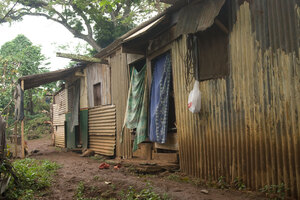[Originally published in the Vanuatu Daily Post’s Weekender Edition.]
Economic hardship is expressed in the simplest terms in Vanuatu. The price of rice, of diesel and cooking gas, the selling price of copra and kava – all of these hit closest to home. The most pressing question facing our new government is how best to insulate Vanuatu from the worst of the economic turmoil affecting the world’s economies.
The question for all ni-Vanuatu is how to hold the new government to account.
Economists describe Vanuatu’s position as that of a ‘price taker’. In layman’s terms that means we don’t get much of a say in how prices are set. OPEC members have never heard of us, and are content to keep it that way. Commodity exchanges deal in volumes that give Vanuatu no more say over prices than a corner shopkeeper.
Nonetheless, government decisions echo throughout the local economy. It’s limited in what it can do, but what it does affects us directly.

